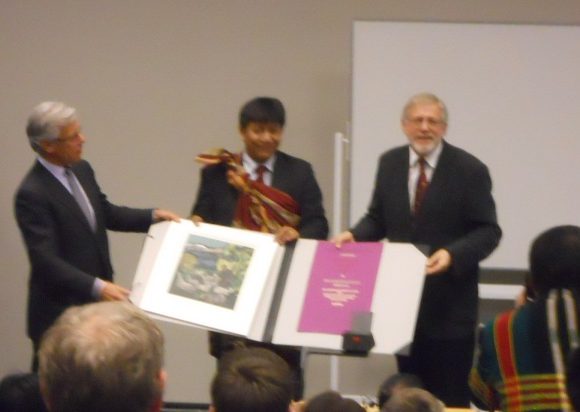Complaints against Burmese Midwife over Medical Charges in Chin State

28 October 2012: Villagers in Mualbem of Tedim Township, Chin State, has accused a Burmese midwife, Daw Myint Myint Than, of demanding an enormous amount of money from the local patients.
Daw Myint Myint Than, a government employee at the Sub-Health Centre in Mualbem, charges 50,000 kyats per patient for her medical service of midwifery, according to local sources.
A Chin patient from Mualbem was quoted by the Voice of Chindwin as saying that the Burmese midwife not only treated unfairly but also overcharged the villagers, adding: “She asked a total of 50 thousand kyats for delivering a baby.”
In the surrounding villages, patients would give a fair amount of money or other things such as chicken and a viss (1.633 kg) of sugar as a sign of gratitude to the nurse or midwife for their medical services, according to the Chin World Media.
One of the community leaders from Tedim Township told Chinland Guardian: “This kind of complaint is not new. Since the government healh system is under-funded and unreliable, the villagers understand that service fees must be given to medical staff for their services.”
As of today, no action has been taken against Daw Myint Myint Than regarding the complaint.
A Chin medical doctor, whose name is kept anonymous, said delivering a baby at hospital should be free of charge and it should be the same for everyone in the country.
Although health care in Burma is nominally free, according to the government, patients in reality have to pay for medicine and treatment at hospitals and public clinics.
Burma’s poorest Chin State is known as a region to which government employees are intentionally transferred as a form of punishment or penalty by their respective departments.
The Ministry of Health was allocated only 43 percent ($4.8 million) of what had been requested during the second session of the Pyithu Hluttaw in August last year.
The budget bill for health for 2012-13 in Burma is proposed at 2.93 percent of the total budget, up from 1.3 percent, according to Xinhua Net News.
Reporting by Thawng Zel Thang






